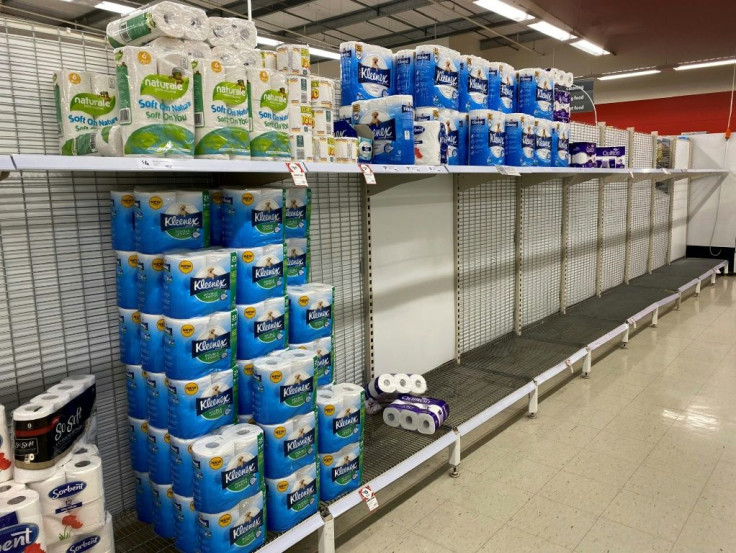Why A Coffee And Toilet Paper Shortage Could Be On The Horizon
Consumers can expect another wave of product shortages at stores as various logistical problems are expected to cause limited supplies of common household items like toilet paper and coffee.
The reason behind the expected shortage of toilet paper is due to a lack of shipping containers and space on cargo ships for the containers, Bloomberg reported. As for coffee, backlogged shipments caused by the blocked Suez Canal could result in major delays.
This would not be the first time consumers faced a shortage of essential items. During the height of the coronavirus pandemic, panic buying led to a short supply of paper products such as paper towels and toilet paper. Cleaning supplies, hand sanitizer, meat and other items also were in limited supply.
However, as the supply chain adjusted to demand and consumer buying habits realigned, these products began reappearing on shelves. Some retailers continued to limit the quantities that could be purchased to ensure that all shoppers had the ability to buy them.
Now with news that shipping containers and space on cargo ships is limited, toilet paper shortages could be coming back. Suzano SA CEO Walter Schalka, whose company is a top pulp producer in Brazil, told Bloomberg that shipping issues could derail his business’ ability to get shipments from South America, leaving store shelves empty of toilet paper once again.
The lack of shipping containers is a problem that has been occurring for months based on the high demand in China and the impact of the COVID-19 pandemic on the global economy, The Hill reported.
Coffee is facing a whole other problem. The Ever Given vessel that is blocking passage othroughthe Suez Canal could spark a shortage of instant coffee as robusta coffee imports – typically used in Nescafe - are stalled globally, according to Bloomberg.
The container ship became stuck in the canal - a key trade route - on Tuesday, blocking passage for ships that carry nearly $10 billion worth of goods. The ship is not expected to be removed for days or even weeks, the news outlet said.
The backup in the canals has increased significantly since Tuesday and isn’t expected to let up, putting a major strain on the coffee industry, which has already been struggling with the limited shipping container issue.
Now, roasters will feel a bigger pinch as 12% of the global coffee trade goes through the Suez Canal. All beans that are imported from East Africa and Asia to Europe use the trade route, according to Bloomberg.
“Resolving this is going to take a few days if we are lucky, but even so, a lot of damage has already been done,” Jan Luhmann, founder of JL Coffee Consulting and a former head coffee buyer at the world’s largest coffee roaster Jacobs Douwe Egberts, told Bloomberg.

© Copyright IBTimes 2025. All rights reserved.




















